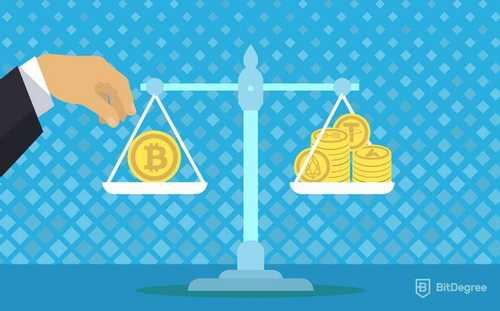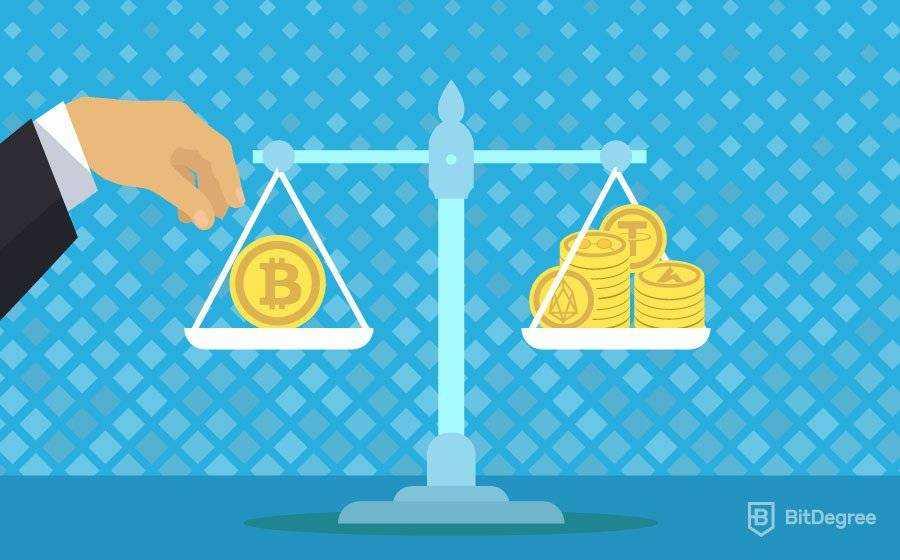Learn more about crypto with this collection
Understanding the basics of cryptocurrency
How to store cryptocurrency securely
Risks and benefits of investing in cryptocurrency
Digital coin definition and examples
A digital coin is an asset native to its own blockchain. For example, Bitcoin exists on the Bitcoin blockchain, Ether operates and functions on the Ethereum blockchain, etc.
Digital coins don't move physically when you send and receive them. They exist as data on a database (or blockchain) and are tracked and verified by computers around the world.
Coinmarketcap lists over 900 different examples of coins, such as Bitcoin (BTC), Bitcoin Cash (BCH), Litecoin (LTC), Ethereum (ETH), Ripple (XRP), and Cardano (ADA).
14
223 reads
Digital coin uses
Digital coins are generally used the same way as real-life money in your wallet. For example, Bitcoin can be used to pay for goods and services all over the internet and often in real-world places too. You can store it for a long time or swap it for something of equal value.
Other digital coins, such as Ether, NEO, and DASH, can be used in different ways than just as a form of money. For example, Ether (ETH) is used for transactions on the Ethereum network. It is needed to send a token and fund the mining costs.
10
181 reads
Tokens
Token are not digital coins. Tokens are created on existing blockchains. The most common blockchain token platform is Ethereum and tokens from this platform are known as ERC-20 tokens.
There are also other tokens such as NEO, Waves, Lisk, and Stratis. NEO uses tokens known as NEP-5 tokens.
12
196 reads
How tokens are created
Creating a token takes little technical ability, but it requires the developer to spend some native coins to the blockchain on which the token is being created.
For example, a creator will need to spend some Ether to create a token on Ethereum. This is used to get the miners to validate the token transaction.
11
186 reads
The purpose of tokens
Most tokens are used with decentralised applications (dApps). When developers create their tokens, they can be used to activate features of the application they were designed for.
Some tokens are created to represent a physical thing. If you want to sell your house using a smart contract, you can't physically put your house into the smart contract, but you can use a token that represents your house.
For example, WePower (WPR) uses a token that represents electricity. Users can buy and sell electricity on the blockchain using smart contracts.
14
181 reads
Understanding how tokens work
Tokens are used to interact with decentralised applications that are built on top of different blockchains.
For example, Civic (CVC) is an application that keeps track of encrypted identities on the Ethereum blockchain. If you were to go on a foreign holiday, you'd need to confirm your identity repeatedly along the way, such as the airline, hotel, etc. If they are a partner of Civic, they can quickly identify you at various points. The CVC token is used for the transaction.
10
167 reads
Security Token, Equity Token, or Utility Token
- Security Tokens. Most tokens issued by Initial Coin Offerings (ICO) are security tokens. This is because the buyer invests their money in the ICO expecting a profit.
- Equity Tokens. It represents some stock or equity in the company that issues it.
- Utility Tokens are also known as application tokens. They are used to give people access to either a product or service. They are rare as most tokens are expected to gain in value.
- Payment Tokens only serves to pay for goods and services.
11
159 reads
CURATED BY
CURATOR'S NOTE
People who are new to cryptocurrency often confuse the term "token" and "coin". This guide defines the two terms and provides some examples for a better understanding.
“
More like this
6 ideas
Proof of Work vs Proof of Stake: Basic Mining Guide
blockgeeks.com
3 ideas
12 ideas
Top Cryptocurrency Myths
investopedia.com
Read & Learn
20x Faster
without
deepstash
with
deepstash
with
deepstash
Access to 200,000+ ideas
—
Access to the mobile app
—
Unlimited idea saving & library
—
—
Unlimited history
—
—
Unlimited listening to ideas
—
—
Downloading & offline access
—
—
Personalized recommendations
—
—
Supercharge your mind with one idea per day
Enter your email and spend 1 minute every day to learn something new.
I agree to receive email updates

